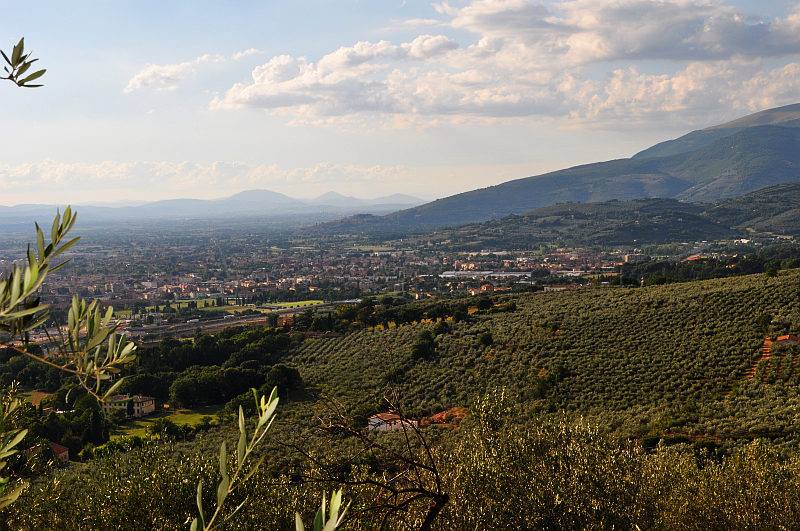Our " Assisi-Spoleto Olive Band " has recently reached an important milestone: it has officially become part of the National Register of Rural and Historic Landscapes, a recognition that lays solid foundations both for inclusion among the landscapes of global interest that the FAO is taking a census, and for recognition as a World Heritage Site by Unesco.
The Olive Band that goes from Assisi to Spoleto, covers about 9,000 hectares and crosses six municipalities: Assisi, Spello, Foligno, Trevi, Campello sul Clitunno and Spoleto. It is characterized by a historical and agronomic value unique in the world: it is an ancient landscape, built and shaped by man , who stubbornly wanted to plant, grow and raise olive trees which, with equal tenacity, wanted to take root, grow and produce on steep, stony and not at all fertile lands and where no other crop could ever have survived. Thanks to this union of man and culture, today we have an area full of centuries-old olive trees, of species with a primitive, rustic and resistant genome, of unique cultivation systems made up of crescents of dry-stone walls and steps of calcareous stones, of aggregations of people who built villages born with the sole purpose of cultivating and harvesting the fruits of hard work, of ancient oil mills that preserve millenary wisdom in the extraction of the precious extra-virgin olive oil which, thanks to the peculiar characteristics of this place, takes on incomparable organoleptic qualities.
In this area men and territory merge to such an extent that it is unthinkable for man to separate himself from the cultivation of the olive tree just as it is impossible for the olive tree to survive without human care.
This goal represents a very important goal because it allows all the small producers of extra-virgin olive oil to valorise the fruit of their efforts and above all to save a cultivation as old as it is threatened from abandonment.
Threats that are of an economic and environmental nature, which grow from year to year and which make cultivation increasingly difficult and onerous and which, without the appropriate recognitions, risk deteriorating and disappearing.
But the "suitable recognitions" are not only those of an entry in a Register of Rural and Historic Landscapes, but are above all those of all the people who have always believed in the work of small producers and in the true value of this product, because, it is evident that, without anyone to appreciate it, cultivation would have long since disappeared without seeing the slightest shadow of either a National or even a World recognition.
People who continue to request this oil year after year aware that their choice, in addition to guaranteeing it an incomparable organoleptic and health value, contributes to the maintenance of a unique landscape, to the protection of a fragile biodiversity and to the livelihood of many workers who in the sweat of their brows participate in keeping our silver-green patriarchs alive.
We hope that this National Recognition will make many other people appreciate all the history, the territory, the people, the work and the love that are hidden behind a simple bottle of oil, and that all this will soon become a World Heritage Site. all of humanity.

